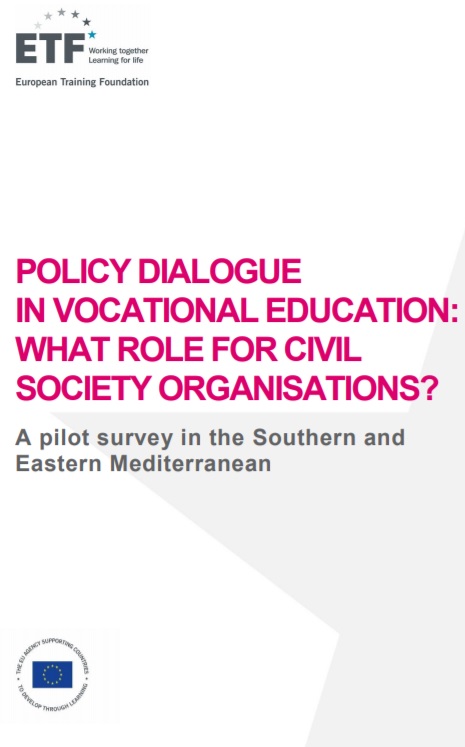
The UNESCO-UNEVOC International Centre: Who We Are | What We Do | Working With Us | Get in Touch
The UNEVOC Network: Learn About the Network | UNEVOC Network Directory
For Members: UNEVOC Centre Dashboard
Thematic Areas: Inclusion and Youth | Digital Transformation | Private Sector Engagement | SDGs and Greening TVET
Our Key Programmes & Projects: BILT: Bridging Innovation and Learning in TVET | Building TVET resilience | TVET Leadership Programme | WYSD: World Youth Skills Day
Past Activities: COVID-19 response | i-hubs project | TVET Global Forums | Virtual Conferences | YEM Knowledge Portal
Our Services & Resources: Publications | TVET Forum | TVET Country Profiles | TVETipedia Glossary | Innovative and Promising Practices | Toolkits for TVET Providers | Entrepreneurial Learning Guide
Events: Major TVET Events | UNEVOC Network News

| Author/s: | Thierry Foubert and Floriana Folisi, ETF |
| Publisher/s: | European Training Foundation |
| Published: | 2019 |
| Licence: | CC BY-SA |
Based on the information collected from Civil Society Organizations in a number of Southern and Eastern Mediterranean countries, this report investigates the role of these organizations in the VET policy cycle. Chapter 1 introduces the methodology applied to this exploratory research, which included an e-survey and a focus group.
Chapter 2 provides an overview of the main characteristics of the research participants. With an initial focus on VET training and the delivery of services, Chapter 3 describes the contribution of CSOs to training provision and monitoring. The following chapter, by contrast, looks at the role of CSOs in policy making via their engagement in ministry-led fora. Chapter 5 seeks to understand if CSOs exercise a ‘watchdog’ function, taking on the task of evaluating and reviewing VET, while Chapter 6 aims to identify the overall added value of CSOs in the VET ecosystem. Finally, conclusions are drawn and recommendations made in the last chapter.